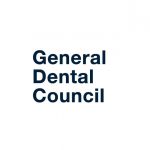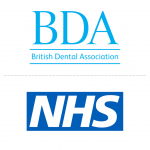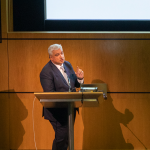Following an open and competitive recruitment process, the General Dental Council (GDC) is pleased to announce the appointment of Serbjit Kaur MBE and Timea Milovecz as registrant members of Council. Both appointments have been made and approved by the Privy Council.
They will join Council on 1 October 2023, when Caroline Logan and Jeyanthi John leave Council, following the completion of their second terms in office.
Serbjit Kaur has previous non-executive experience including financial monitoring, organisational reporting and risk management, and she will also join our Audit and Risk Committee. Timea Milovecz’s role was designed to appeal to registrants at an earlier stage in their career and was promoted to a wider range of dental professionals and is intended to provide plenty of opportunities to develop board skills within a regulatory environment.
Both appointees bring a wealth of different experiences that will be invaluable to Council.
Serbjit brings significant experience as a dental practitioner and practice owner, both in the NHS and private sectors.
As a dentist, she has had a wide and varied career including the roles of Deputy Chief Dental Officer and Acting Chief Dental Officer at NHS England between 2013 and 2015. Before this, she spent five years as the Head of Quality and Standards – Dental and Eye Care at the Department of Health and Social Care and has represented UK dental interests at the European Commission.
She brings significant experience in scrutiny and oversight through her roles as an Associate Non-Executive Director and then Non-Executive Director at Nottingham University Hospital Trust (NUH), and as a registrant Member of the GDC’s Statutory Panellists Assurance Committee – a role she has held since 2020. At NUH, she previously sat on the Audit Committee and the Quality Assurance Committee, sits on the People and Culture Committee, and currently Chairs the Equality and Diversity Assurance Committee.
Serbjit also holds an MA in Applied Health Policies.
Timea initially registered with the GDC as a dental nurse, and then additionally as a dental hygienist, and has worked in both clinical capacities during her career.
She is currently a dental inspector in the Oral Health Team in London and the East of England for the Care Quality Commission, where she undertakes inspections and assessments of dental services. In this role she works closely with practices requiring improvement, and forms judgments about quality, safety and regulatory risk. For the past ten years, Timea has also sat as a member of the GDC’s Fitness to Practise panel.
Timea previously worked in private practice for 12 years, initially overseeing compliance and patient care services, and then clinically in both her GDC registrant roles. All these roles have afforded her a breadth of understanding of regulation within the dental sector.
Timea also holds a Master’s degree in Healthcare Leadership from Anglia Ruskin University and a Level 6 Professional Award in Regulatory Skills in the Health and Social Care Sector.
In announcing both appointments, Chair of Council Lord Toby Harris said: “I’d like to welcome Serbjit and Timea and look forward to working with them. Both bring a wealth of different experiences from across the dental professions and have demonstrated they have the enthusiasm, passion, and breadth of view to provide strategic oversight to the GDC and will be able to provide new perspectives and insights.
“I would also like to take this opportunity to thank Caroline and Jeyanthi for their support and dedication to the GDC, both as Council Members and members of the GDC’s Remuneration and Nomination Committee. I wish them every success in their next challenge.”











